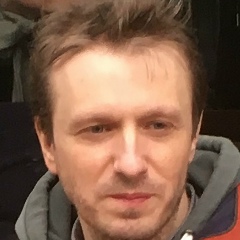#МыслиВслух
Мы ловим, нас ловят
Ну, ладно Facebook, который славится сомнительной репутацией, но в вышедшей в начале года нашумевшей книге "The Age of Surveillance Capitalism" ("Капитализм Слежки") приводится в пример бренд, прежде вообще не вызывавший никаких подозрений. Все, конечно, помнят покемоновскую лихорадку трехлетней давности - на целое лето Pokemon Go вытеснил из медиапространсва вообще все остальные мобильные игры, и через прессу это подавалось как первый по-настоящему успешный эксперимент с дополненной реальностью и, к тому же, мотивирующий людей выходить поиграть на открытом воздухе, параллельно изучая исторические локации города. В общем, повестка была однозначно позитивная.
Но, как теперь выясняется, разработчики из Niantic Labs вовремя подсуетились монетизацией такого ошеломительного успеха, потому что они получали заказы от коммерческих предприятий, а именно заказы на размещение покемонов и их виртуальных станций на карте таким образом, чтобы игроки в их поисках неминуемо проходили через нужные места - бары, рестораны, пиццерии, магазины... (https://www.wired.co.uk/article/the-age-of-surveillance-capitalism-facebook-shoshana-zuboff) В общем, кто заплатит, там и окажется вот эта толпа молодых людей со смартфонами. Получился такой эпохальный прецедент, когда массовое манипулирование в онлайне, наконец, соприкоснулось с оффлайном. С тем самым оффлайном, на который уже нацелились корпорации.
В свое время великий французский ученый Пьер-Симон Лаплас изобрел знаменитый мысленный эксперимент, который потом прозвали "демоном Лапласа". Речь, конечно, не о каком-то дьяволе, а о машине, гипотетически которая могла бы знать расположение и скорость каждой элементарной частицы во Вселенной. И, располагая такими знаниями, а также знаниями о фундаментальных физических законах и константах, эта машина, в теории, могла бы рассчитать положение этих самых элементарных частиц через мгновения, то есть, иными словами, предсказать будущее. До сих пор ведутся ожесточенные споры насколько всё это возможно. Некоторые утверждают, что сверхмощный квантовый компьютер, в принципе, как раз годится на роль "демона".
Но факт в том, что, если не утрировать всю эту схему и просто представить себе насколько предсказуема какая-нибудь изолированная система - хотя бы та же самая социальная сеть, где не требуются суперточные прогнозы, а для манипулирования элементами этой системы, то есть людьми, достаточно просто кого-то там подтолкнуть в нужное время в нужном направлении - как складывается такая не самая приятная картина, что, в принципе, всё это реализуемо. Более того, в приведенных выше примерах все благополучно работает.
Другое дело - в перспективе каждая страна, авторитарная или условно авторитарная, захочет иметь свои такие изолированные загончики интернета, чтобы проводить собственные эксперименты. Мы знаем что творится в России, что творится в Китае - это известные истории. Но есть целый список стран, которые активно пытаются все отфильтровать и изолировать в своих киберпространствах, например, Куба, Иран, Саудовская Аравия, Сирия, Йемен - ну такая себе хорошая компания...И все это пока слабо вяжется с заявлениями ООН о том, что свобода человека в интернете является его неотъемлемым правом, но, поговаривают, что вскоре за пресечение такой вот свободы могут накладывать международные санкции. А нам, как известно, только их и не хватало...
Мы ловим, нас ловят
Ну, ладно Facebook, который славится сомнительной репутацией, но в вышедшей в начале года нашумевшей книге "The Age of Surveillance Capitalism" ("Капитализм Слежки") приводится в пример бренд, прежде вообще не вызывавший никаких подозрений. Все, конечно, помнят покемоновскую лихорадку трехлетней давности - на целое лето Pokemon Go вытеснил из медиапространсва вообще все остальные мобильные игры, и через прессу это подавалось как первый по-настоящему успешный эксперимент с дополненной реальностью и, к тому же, мотивирующий людей выходить поиграть на открытом воздухе, параллельно изучая исторические локации города. В общем, повестка была однозначно позитивная.
Но, как теперь выясняется, разработчики из Niantic Labs вовремя подсуетились монетизацией такого ошеломительного успеха, потому что они получали заказы от коммерческих предприятий, а именно заказы на размещение покемонов и их виртуальных станций на карте таким образом, чтобы игроки в их поисках неминуемо проходили через нужные места - бары, рестораны, пиццерии, магазины... (https://www.wired.co.uk/article/the-age-of-surveillance-capitalism-facebook-shoshana-zuboff) В общем, кто заплатит, там и окажется вот эта толпа молодых людей со смартфонами. Получился такой эпохальный прецедент, когда массовое манипулирование в онлайне, наконец, соприкоснулось с оффлайном. С тем самым оффлайном, на который уже нацелились корпорации.
В свое время великий французский ученый Пьер-Симон Лаплас изобрел знаменитый мысленный эксперимент, который потом прозвали "демоном Лапласа". Речь, конечно, не о каком-то дьяволе, а о машине, гипотетически которая могла бы знать расположение и скорость каждой элементарной частицы во Вселенной. И, располагая такими знаниями, а также знаниями о фундаментальных физических законах и константах, эта машина, в теории, могла бы рассчитать положение этих самых элементарных частиц через мгновения, то есть, иными словами, предсказать будущее. До сих пор ведутся ожесточенные споры насколько всё это возможно. Некоторые утверждают, что сверхмощный квантовый компьютер, в принципе, как раз годится на роль "демона".
Но факт в том, что, если не утрировать всю эту схему и просто представить себе насколько предсказуема какая-нибудь изолированная система - хотя бы та же самая социальная сеть, где не требуются суперточные прогнозы, а для манипулирования элементами этой системы, то есть людьми, достаточно просто кого-то там подтолкнуть в нужное время в нужном направлении - как складывается такая не самая приятная картина, что, в принципе, всё это реализуемо. Более того, в приведенных выше примерах все благополучно работает.
Другое дело - в перспективе каждая страна, авторитарная или условно авторитарная, захочет иметь свои такие изолированные загончики интернета, чтобы проводить собственные эксперименты. Мы знаем что творится в России, что творится в Китае - это известные истории. Но есть целый список стран, которые активно пытаются все отфильтровать и изолировать в своих киберпространствах, например, Куба, Иран, Саудовская Аравия, Сирия, Йемен - ну такая себе хорошая компания...И все это пока слабо вяжется с заявлениями ООН о том, что свобода человека в интернете является его неотъемлемым правом, но, поговаривают, что вскоре за пресечение такой вот свободы могут накладывать международные санкции. А нам, как известно, только их и не хватало...
#Thinking out loud
We are caught, we are being caught
Well, okay, Facebook, which has a dubious reputation, but the acclaimed book The Age of Surveillance Capitalism, published earlier this year, cites a brand that has never aroused any suspicion before. Everyone, of course, remembers the Pokemon fever of three years ago - for the whole summer Pokemon Go squeezed out all other mobile games from the media space, and through the press it was presented as the first truly successful experiment with augmented reality and, moreover, motivating people to go out to play on open air while exploring the historical locations of the city. In general, the agenda was unambiguously positive.
But, as it now turns out, the developers from Niantic Labs got ahead of themselves in time to monetize such a stunning success, because they received orders from commercial enterprises, namely, orders for placing Pokémon and their virtual stations on the map in such a way that players in their search would inevitably go through the necessary places - bars, restaurants, pizzerias, shops ... (https://www.wired.co.uk/article/the-age-of-surveillance-capitalism-facebook-shoshana-zuboff) In general, whoever pays is there and there will be this crowd of young people with smartphones. It turned out to be such an epoch-making precedent when massive online manipulation finally came into contact with offline. With the same offline, which corporations have already set their sights on.
At one time, the great French scientist Pierre-Simon Laplace invented the famous thought experiment, which was later nicknamed "Laplace's demon." This, of course, is not about some devil, but about a machine, which, hypothetically, could know the location and speed of every elementary particle in the Universe. And, having such knowledge, as well as knowledge about fundamental physical laws and constants, this machine, in theory, could calculate the position of these very elementary particles in moments, that is, in other words, predict the future. Until now, there are fierce debates as far as possible. Some argue that a super-powerful quantum computer is, in principle, just suitable for the role of a "demon".
But the fact is that if you do not exaggerate this whole scheme and just imagine how predictable some isolated system is - at least the same social network, where super-accurate forecasts are not required, but to manipulate the elements of this system, that is, people, it is enough just to push someone there at the right time in the right direction - how such a not very pleasant picture develops, that, in principle, all this is realizable. Moreover, in the examples above, everything works fine.
It's another matter - in the long run, every country, authoritarian or conventionally authoritarian, will want to have its own isolated enclosures of the Internet in order to conduct their own experiments. We know what is happening in Russia, what is happening in China - these are well-known stories. But there is a whole list of countries that are actively trying to filter and isolate everything in their cyberspaces, for example, Cuba, Iran, Saudi Arabia, Syria, Yemen - well, such a good company ... And all this so far does not fit well with the UN statements that that the freedom of a person on the Internet is his inalienable right, but they say that soon international sanctions may be imposed for the suppression of such freedom. And we, as you know, only lacked them ...
We are caught, we are being caught
Well, okay, Facebook, which has a dubious reputation, but the acclaimed book The Age of Surveillance Capitalism, published earlier this year, cites a brand that has never aroused any suspicion before. Everyone, of course, remembers the Pokemon fever of three years ago - for the whole summer Pokemon Go squeezed out all other mobile games from the media space, and through the press it was presented as the first truly successful experiment with augmented reality and, moreover, motivating people to go out to play on open air while exploring the historical locations of the city. In general, the agenda was unambiguously positive.
But, as it now turns out, the developers from Niantic Labs got ahead of themselves in time to monetize such a stunning success, because they received orders from commercial enterprises, namely, orders for placing Pokémon and their virtual stations on the map in such a way that players in their search would inevitably go through the necessary places - bars, restaurants, pizzerias, shops ... (https://www.wired.co.uk/article/the-age-of-surveillance-capitalism-facebook-shoshana-zuboff) In general, whoever pays is there and there will be this crowd of young people with smartphones. It turned out to be such an epoch-making precedent when massive online manipulation finally came into contact with offline. With the same offline, which corporations have already set their sights on.
At one time, the great French scientist Pierre-Simon Laplace invented the famous thought experiment, which was later nicknamed "Laplace's demon." This, of course, is not about some devil, but about a machine, which, hypothetically, could know the location and speed of every elementary particle in the Universe. And, having such knowledge, as well as knowledge about fundamental physical laws and constants, this machine, in theory, could calculate the position of these very elementary particles in moments, that is, in other words, predict the future. Until now, there are fierce debates as far as possible. Some argue that a super-powerful quantum computer is, in principle, just suitable for the role of a "demon".
But the fact is that if you do not exaggerate this whole scheme and just imagine how predictable some isolated system is - at least the same social network, where super-accurate forecasts are not required, but to manipulate the elements of this system, that is, people, it is enough just to push someone there at the right time in the right direction - how such a not very pleasant picture develops, that, in principle, all this is realizable. Moreover, in the examples above, everything works fine.
It's another matter - in the long run, every country, authoritarian or conventionally authoritarian, will want to have its own isolated enclosures of the Internet in order to conduct their own experiments. We know what is happening in Russia, what is happening in China - these are well-known stories. But there is a whole list of countries that are actively trying to filter and isolate everything in their cyberspaces, for example, Cuba, Iran, Saudi Arabia, Syria, Yemen - well, such a good company ... And all this so far does not fit well with the UN statements that that the freedom of a person on the Internet is his inalienable right, but they say that soon international sanctions may be imposed for the suppression of such freedom. And we, as you know, only lacked them ...

У записи 2 лайков,
0 репостов,
214 просмотров.
0 репостов,
214 просмотров.
Эту запись оставил(а) на своей стене Michael Polishchuk























